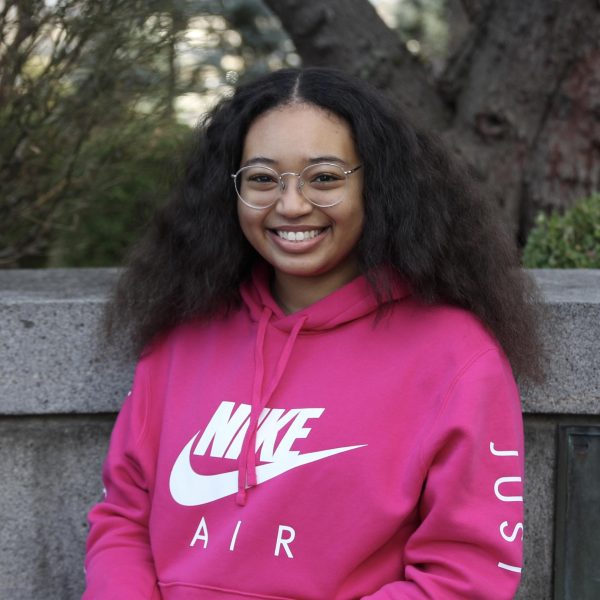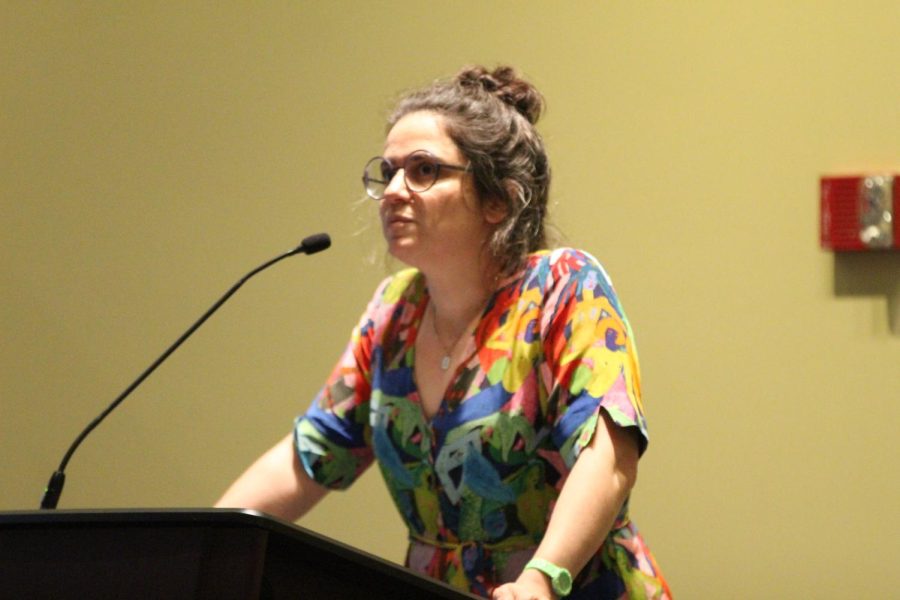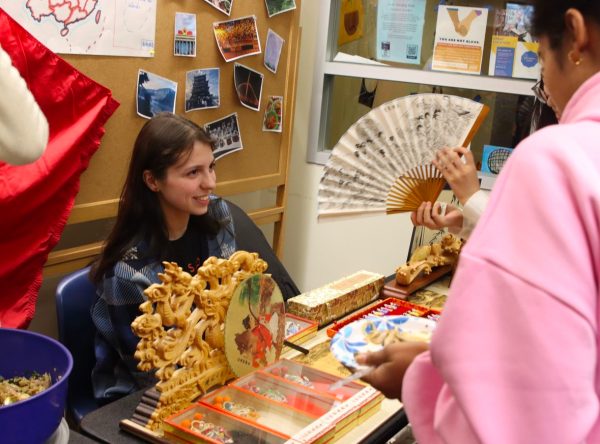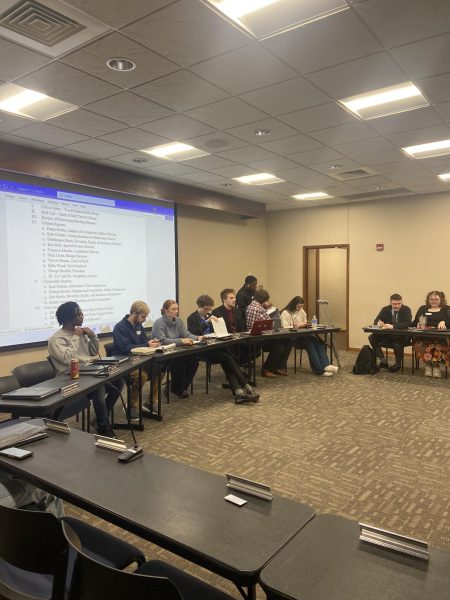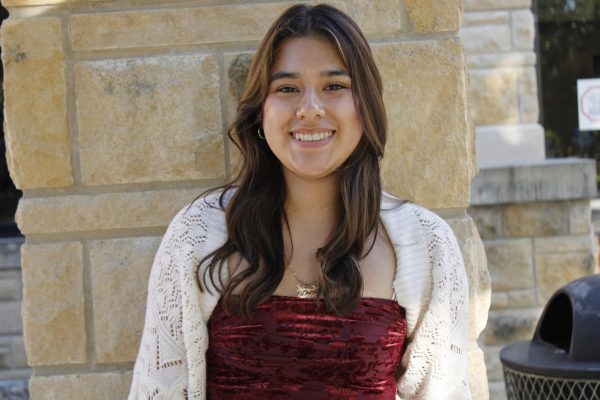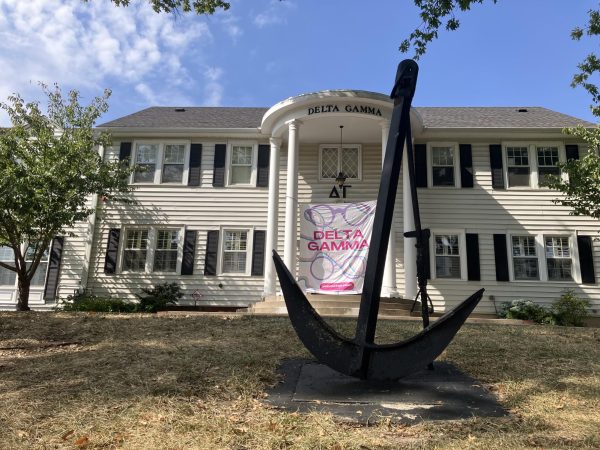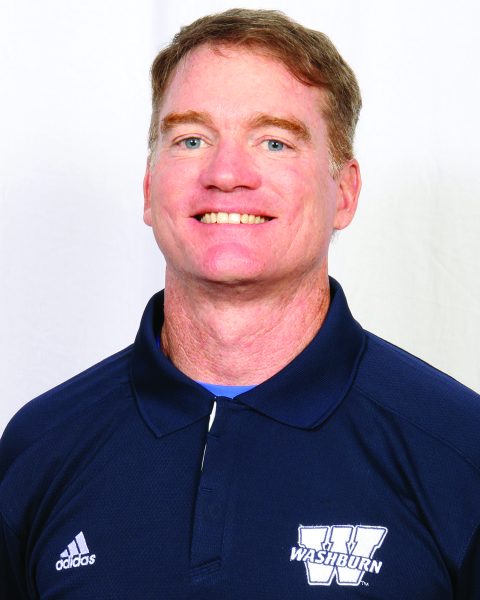Agnes Callard speaks on free speech at recent Russell Jacobs Lecture
Free speech is a principle, often misunderstood, which allows one to express their thoughts and opinions without government interference. However, in society, free speech has become a tool that people use to convey their viewpoints and invalidate others.
Rik Hine, professor of philosophy, had been searching for a philosopher to present in a Russell Jacobs Lecture. He came across Agnes Callard, associate professor of philosophy at the University of Chicago. Callard is well known for her work in ancient Greek philosophy and moral psychology. She has also built a large audience through her public philosophy work and socratic lectures.
Impressed with her work, Hine invited her to speak at Washburn.
Tuesday, Sept. 20, Callard began her lecture explaining why she’d chosen the topic of free speech. She recalled reading an article titled “I Came to College Eager to Debate. I Found Self- Censorship Instead” in the New York Times written by Emma Camp, a senior at the University of Virginia.
In the article, Camp described experiences in college where students and professors would censor themselves so no conflict was caused. Essentially, Camp wanted people to recognize the oppression against free speech when it comes to controversial topics at universities.
Callard explained that after reading it, she felt sympathetic but also bullied by the language Camp utilized. Throughout the article, terms such as “urgently,” “must” and “should” were used to call people to action. Callard felt as though Camp was shouting at her and was surprised, even though this type of language is common in opinion articles.
Callard later clarified that it was not Camp’s intention to bully her or universities, but that often people are bullies without realizing it. This is where politicization (the action of causing an activity or event to become political in character) comes in. Callard believes politicization is the reason why people can’t communicate because it presents opposing sides in a conversation, thus creating conflict. Often, when politicization is in play, people find it difficult to present their thoughts on a matter without it being seen as an attack.
Throughout the lecture, Callard referenced excerpts by Socrates, an ancient Greek philosopher, to help define what free speech actually is in today’s society. Ultimately, she equated free speech to refutation, which is the action of proving a statement or theory to be wrong or false. In essence, during conversations that are heavily politicized, people refute the opposing argument rather than listening to understand. This oppresses one’s freedom of speech in argumentative discussions.
Chris Jones, professor of religious studies, found Callard’s lecture compelling and thought provoking.
“I’ve always thought of free speech as being I can say what I want as long as it doesn’t directly lead to violence, but I never thought about if we’re really free to speak,” said Jones. “I have all the freedom in the world, but also I have a job, so that really limits what I’m actually going to say.”
Jones also weighed in on the significance of having free speech within classrooms.
“Developing a space in the classroom where students really do feel free to say what they think and to be corrected on that, or to have somebody push back on it, is a good thing,” said Jones. “It’s really hard to do, but when that happens, it’s beautiful and it’s something everybody learns from.
Hine enjoyed Callard’s argument as well and thinks that lectures such as these are important for college students.
“The fundamental lifeblood of a university is to be able to introduce students to a variety of ideas or concepts that they wouldn’t have come across before,” said Hine. “Having them here, in a forum where they feel able to go and see these talks, gets them to think carefully about what they’re doing and why they’re doing it.”
The department of philosophy will continue their annual Russell Jacobs Lectures in the near future and invite all students, staff and faculty to their next event.
Edited by : Alijah McCracken
Your donation will support the student journalists of Washburn University. Your contribution will allow us to purchase equipment and cover our annual website hosting costs.
